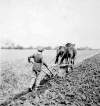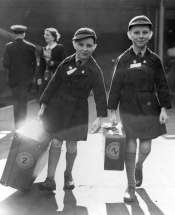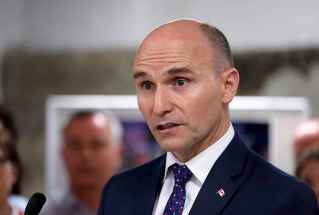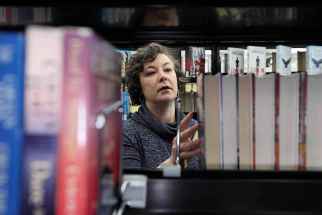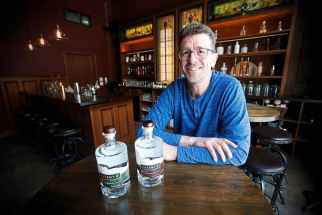UK offers payments to surviving British Home Children
Read this article for free:
or
Already have an account? Log in here »
To continue reading, please subscribe:
Monthly Digital Subscription
$0 for the first 4 weeks*
- Enjoy unlimited reading on winnipegfreepress.com
- Read the E-Edition, our digital replica newspaper
- Access News Break, our award-winning app
- Play interactive puzzles
*No charge for 4 weeks then price increases to the regular rate of $19.00 plus GST every four weeks. Offer available to new and qualified returning subscribers only. Cancel any time.
Monthly Digital Subscription
$4.75/week*
- Enjoy unlimited reading on winnipegfreepress.com
- Read the E-Edition, our digital replica newspaper
- Access News Break, our award-winning app
- Play interactive puzzles
*Billed as $19 plus GST every four weeks. Cancel any time.
To continue reading, please subscribe:
Add Free Press access to your Brandon Sun subscription for only an additional
$1 for the first 4 weeks*
*Your next subscription payment will increase by $1.00 and you will be charged $16.99 plus GST for four weeks. After four weeks, your payment will increase to $23.99 plus GST every four weeks.
Read unlimited articles for free today:
or
Already have an account? Log in here »
Hey there, time traveller!
This article was published 26/02/2019 (2482 days ago), so information in it may no longer be current.
After shipping out destitute children to help build its colonies in Canada and elsewhere, the government of the United Kingdom is offering payment for harm done to the few still living.
Starting March 1, British Home Children can apply for £20,000 “in recognition of the fundamentally flawed nature of the historic child migration policy,” the Child Migrants Trust announced.
Between 1868 and the 1930s, more than 100,000 minors in Great Britain were put on ships to Canada — an estimated two-thirds of whom were under the age of 14. Many were the overflow of London’s poor offspring, sent to Canada where there was a shortage of labour.
“Child-saving institutions” in Victorian England saw it as a win-win situation. Head taxes were paid to agents by the UK and government of Canada for each child who boarded ships bound for Canada. When they arrived on ships at Canadian harbours, siblings were separated and sent to distribution centres throughout the country. It stopped when the Depression hit in the 1930s and jobs were scarce.
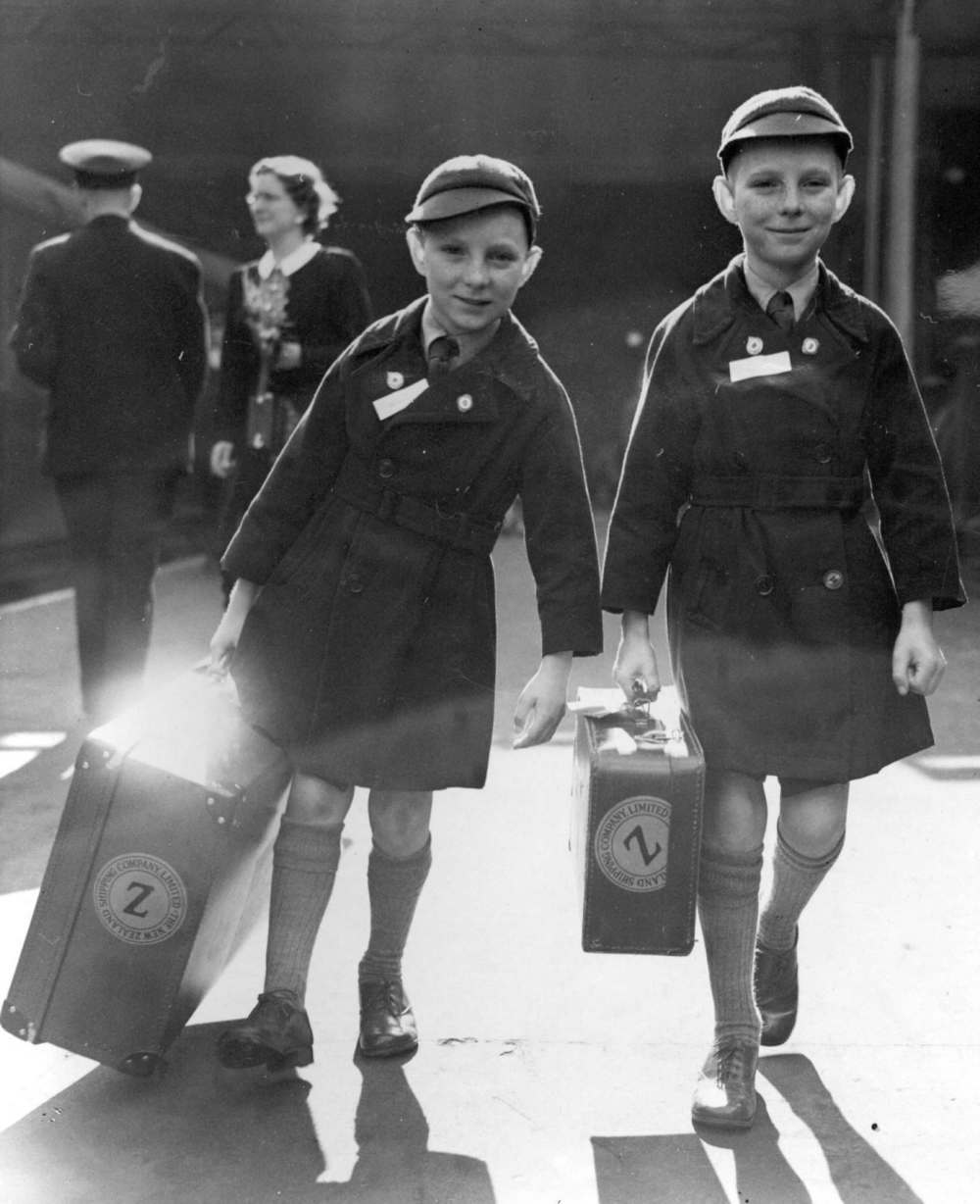
The financial redress announced by the UK in late January is in response to Britain’s Independent Inquiry into Child Sexual Abuse and its report on child migration programs. It called for offering a payment to surviving former British child migrants because they were left in situations that exposed them to the risk of sexual abuse, regardless of whether they suffered abuse.
The catch is they have to have been alive on March 1, 2018 for them or their beneficiaries to receive the payment, which is worth roughly $34,288 Cdn.
“There’s so few of them still alive in Canada,” said Winnipeg’s Roberta Horrox. Her grandfather, James Towner, was an orphan plucked off the streets of London and sent to Canada in 1900 at age 10. He died in 1984. Horrox said she doesn’t know how many British Home Children are still alive in Manitoba. The Child Migrants Trust did not respond Tuesday to Free Press inquiries about the number still living in Canada.
“It would be great to get the word out so they can claim their payments,” said Horrox. Her grandfather had been taken in by the Barnardo Society in London, one of 50 “child-saving” organizations in Victorian England that sent children to build its colonies in places such as Canada.
Who can claim “ex-gratia payment scheme for former British child migrants”?
A child migrant who …
– Was sent from the United Kingdom and Crown Dependencies (England, Wales, Northern Ireland, Scotland, Channel Islands and the Isle of Man)
– Was sent by a church, state, voluntary or other organization to one of the receiving countries (Australia, New Zealand, Canada and Zimbabwe/former Rhodesia)
– Must not have been accompanied by an adult family member, or sent to live with a member of their birth family.
Each eligible claimant will receive a payment of £20,000.
Child Migrants Trust will start accepting applications March 1 and remain open for two years from its launch. Later claims will be considered on a case by case basis and a late claim will not affect eligibility or the amount of the payment.
For more see childmigrantstrust.com
Source: Child Migrants Trust
In Manitoba, at the Barnardo Industrial Farm near Russell, more than 1,660 British kids were trained as agricultural workers from 1888 to 1907. Thousands more were sent to work on Manitoba farms where, in the late 1800s, there was a huge demand for labourers, especially at harvest time.
They were identified as “orphans” but only three per cent actually were, the British Home Children Research and Advocacy Association of Canada says. The Free Press has interviewed the descendants of many whose parents couldn’t afford to feed them, or had a single mother with no rights or a widowed father who couldn’t cope.
One was Dick Frost, grandfather of Winnipeg Foundation CEO Rick Frost. In 1908 at age 12, Dick was shipped to Canada from London to work on a farm. His mother died when he was just three and his father hit the bottle and beat him. Dick ended up in London’s National Children’s Home and Orphanage. When he was 12, he was sent to work a farm in Huntsville, Ont.
“In the society of his time, sending my grandfather to Canada was viewed as a charitable act,” said Frost, whose grandfather’s “early life was not at all easy.” He has mixed feelings about the financial redress offered. “In today’s context I think the gesture is meaningful but it is also very late since my grandfather died 40 years ago.”
The Canadian association researching the history of those migrant kids says 65 per cent were abused.
“Many of our British Home Children suffered terrible sexual and physical abuse as a result of their migration to Canada and no amount of compensation can make that right,” said Lori Oschefski, CEO of the British Home Children Research and Advocacy Association of Canada, based in Barrie, Ont.
The group is trying to reach out to surviving UK child migrants and their descendants to alert them. But, with fewer than 100 survivors believed to be alive in Canada, offering compensation now is too little too late, said Oschefski.
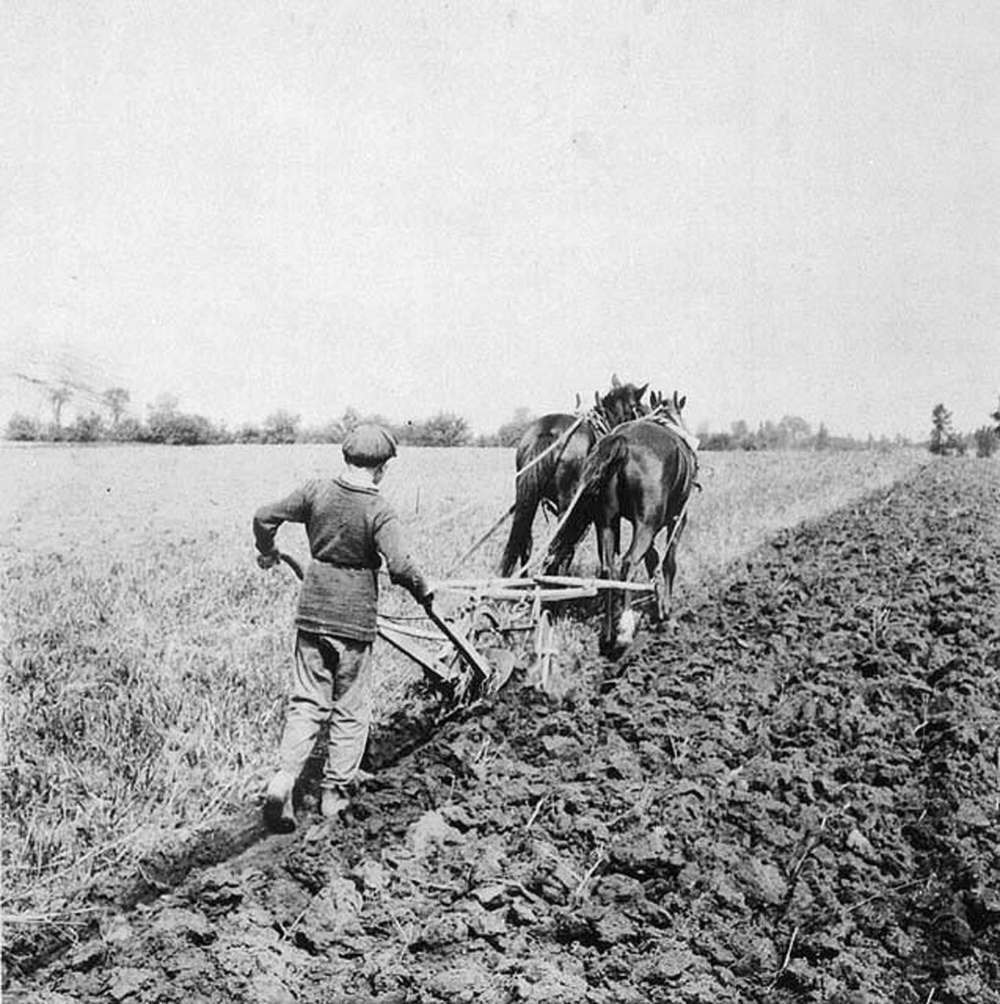
“It is an insult,” said Oschefski, who called out the Canadian government for its complicity in the child migration scheme and its lack of apology or recognition.
The trauma that many of the British Home Children experienced was often passed down to the next generation, the research and advocacy association said in a news release.
“They have lived with stolen identities, rejected by their country of birth and unwelcome in the country they were deported to,” it said.
carol.sanders@freepress.mb.ca

Our newsroom depends on a growing audience of readers to power our journalism. If you are not a paid reader, please consider becoming a subscriber.
Our newsroom depends on its audience of readers to power our journalism. Thank you for your support.


